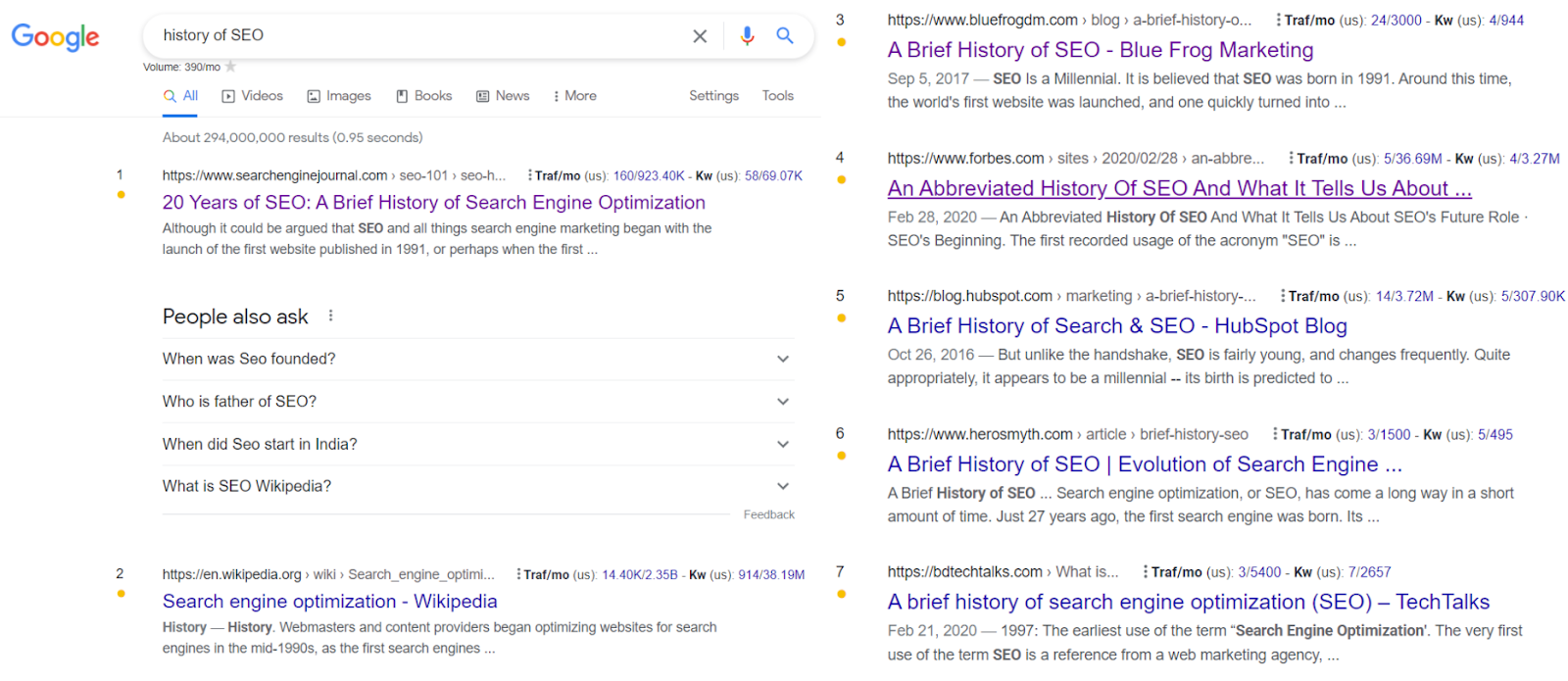at least three histories of seo
i've been yelling about seo for years, as evidenced by one of the only blog posts that made it on the first iteration of seophia.com in 2021. it is reprinted in full here. emphasis added in 2024 to point out the things i still stand by.
2021 - This whole thing started because I want to know the history of search engines and SEO.
But, when I inevitably googled “history of SEO,” I was very disappointed in the results:

First, why does everyone only want a brief history of SEO?
The other problem is that these results provide a very narrow view of the history of SEO and search engines. Most of them are from SEO sites or marketing agencies and focus only on SEO from a marketing or business perspective. They’re looking at key algorithm updates and the rise of Google, because those pieces of SEO history have the most direct impact on active SEOs today.
This approach to the history of SEO makes sense to me. It’s reasonable to assume the search volume for this term is so high because SEOs are looking into it, especially since good SEO strategists understand the evolution of search engines over time.
What bothers me is how Google-centric these histories of SEO are. It makes sense, given Google’s worldwide dominance. But most timelines mention earlier search engines and SEO efforts like Yahoo or AltaVista just enough to let you know they exist, and then basically switch to a history of Google once we hit the late 90s.
All of this brings up a new question: how did Google have such a meteoric rise?
Many of my preliminary readings on search engines in the 90s indicate that Yahoo was projected to be the dominant search engine. AltaVista and AskJeeves were really strong players too. But then Google showed up and just crushed everyone!
From a computer science/technical perspective, there are some relatively simple explanations for why Google became synonymous with search. Google was one of the first search engines to use a link-based model of ranking web pages, which was fundamentally different from how other search technology operated. It effectively made online information a democracy — the more people that vouch for this information, the more likely it is to be true.
I’m still digging into this, but it does seem to be true that Google created better technology and a better user experience than competing search engines. Silicon Valley in general has a real sense of letting the best product win, and Google won.
So then we go a little deeper. If Google created a truly different and superior technology, how did they manage to spread that technology across the globe?
Put another way, how did Google gain widespread recognition and use by the general public at virtually the same rate as the internet itself?
Pulled together, these questions give me three strands of search engine and SEO history that I want to explore:
- How SEO Developed into an Invaluable Business Tool
- How Google Dominated All Other Search Engines
- How the Use of Search Engines Spread Across the General Public
It feels really obvious to me that Google in particular radically changed many key facets of our society. It changed how businesses run, how we access information, accelerated our adoption of the internet, and probably a lot more.
I also find it fascinating/baffling that in all the recent discourse about online misinformation, Google gets off pretty easy compared to Facebook and other social media platforms. Don’t get me wrong, social media is a firestorm of bad information, but it feels like no one questions what is essentially the agreed upon resource for all information in our society.
I want to tell the story of how search engines — particularly Google — diffused across our society. Then I want to understand how the rise of search engines changed the way we interact with information.